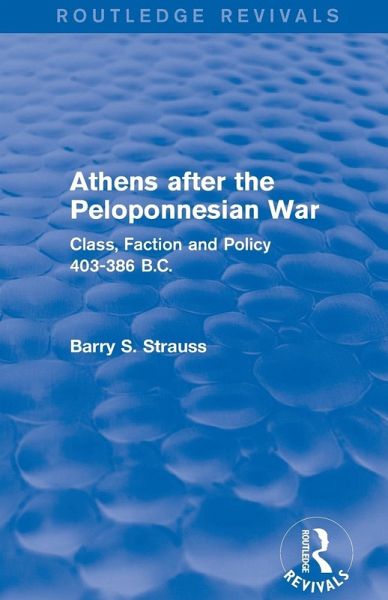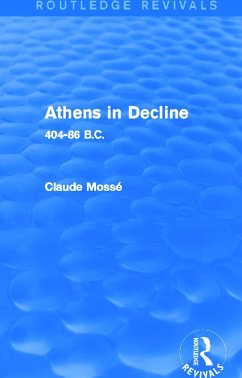
Athens after the Peloponnesian War (Routledge Revivals)
Class, Faction and Policy 403-386 B.C.
Versandkostenfrei!
Versandfertig in 1-2 Wochen
68,99 €
inkl. MwSt.
Weitere Ausgaben:

PAYBACK Punkte
34 °P sammeln!
Athens after the Peloponnesian War, first published in 1986, undertakes a radically new investigation into the nature of Athenian political groups. The general model of 'faction' provided by political anthropology provides an indispensable paradigm for the Athenian case. It offers a detailed demographic analysis, astute insight into political discourse, and is altogether one of the most thorough treatments of this important period in the Athenian democracy.














